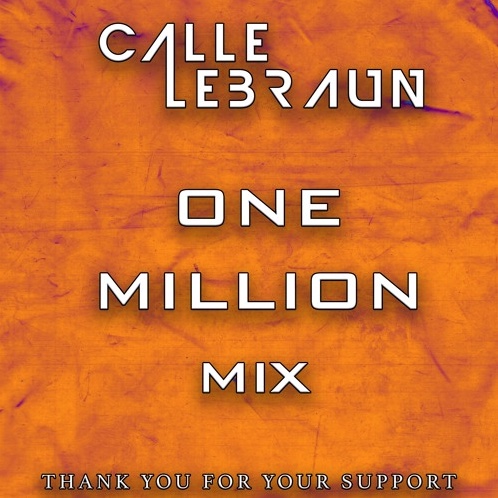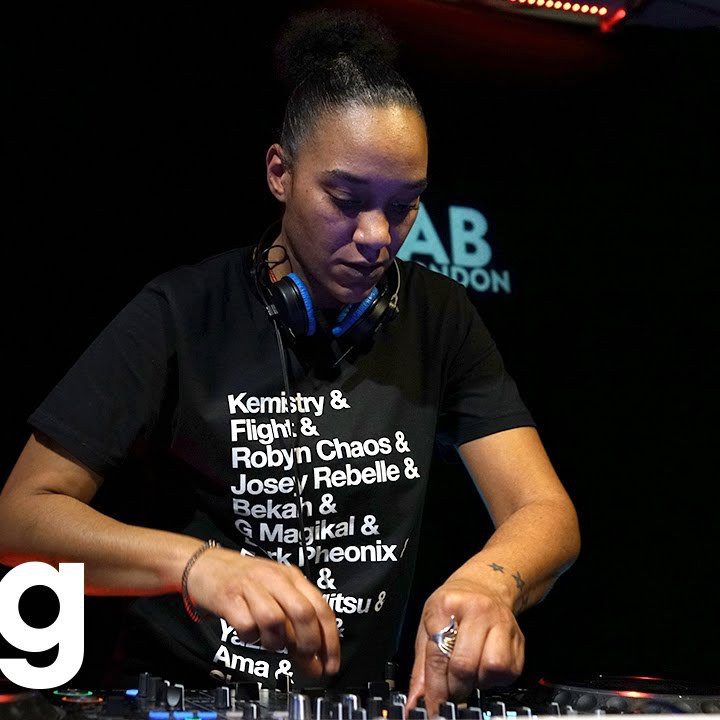Peak Times #2
Sean Von Piff dons his armour and swings his mace to battle through the hordes of mixes on the virtual battlefield in search of the holy grails.
There might be light at the end of the tunnel. Boris Johnson had barely finished outlining the road map out of lockdown when my Instagram feed became an event listings page. Parties, brunches, festivals, album tour dates. After being told to retrain, and watching the government’s woefully late pandemic relief fund descend into trickle down economics, the gig-reliant membership of the music industry (read: 99% of it) is going all-in on the proposed June 21 release date.
June 21 has also won over the hearts and minds of the general public. People are predicting South Beach-like scenes on Shoreditch High Street, a week’s worth of national holiday/hangover/comedown, and the kind of spike in infection rates that’ll have us all locked down ‘til next summer. I’d put a hefty chunk of furlough money on all three outcomes if it didn’t mean starving to death quicker than the time it takes to say ‘super spreader event’. Also, there’s no such thing as a ‘hefty chunk’ of furlough money… not that I’m complaining — it could always be worse. The plight is young!
DJ Bempah guest mix for Bok Bok

For a genre almost criminalised out of existence, UK drill is proving to have remarkable staying power. In eight short years, the crew-led, Chicago-indebted era of early 150 and 67 has led to the deafening buzz of solo stars like Central Cee, who can turn down six-figure record deals while their debut album(s) fly up the charts. Presumably they’re also taking pride in this decidedly British style influencing rap scenes in Australia, Brooklyn and beyond. South London’s DJ Bempah has seen this all unfold from the eye of the storm. He cut his teeth on Radar Radio, toured Europe as 67’s official DJ, interviewed the late, great Pop Smoke on his bi-weekly NTS show Scary Things, and even released a mix via limited cassette run. His journey so far mirrors UK drills’ story from commercial darkhorse to critical darling. ‘Instrumental drill’ might be the next chapter. Bok Bok’s Rinse FM show (and new label AP Life) adds to the boundary-blurring movements of DJs and producers like Oblig, Nammy Wams, Ill Blu and Ikonika. He builds things up with an experimental edge for the first hour and a half, before Bempah plays it straight with a stream of uninterrupted vocal bangers, which acts as a blood-letting release.
Calle Lebraun – One Million Mix

London’s deep tech sound may not have broken internationally (yet) since its inception in the early ’10s, but it wasted no time at all in travelling up North and spreading to the second cities. While the genre could never rival bassline/jackin’s presence in that region of the country, it easily drew crowds at Birmingham’s famous Rainbow club thanks to people like Marc Ryder and Arun Verone, and attracted top Midlands talent X5 Dubs and Manchester’s very own Calle Lebraun. Calle Lebraun’s tunes have been a fixture on the circuit since 2014, and for good reason. He makes heavyweight house music of the highest calibre, perfect for shuffling the soles off your trainers while shouting ‘fuck off!’ too. Calle’s productions are full of energy and character, and they make up almost half of the tracklist on his most recent Soundcloud mix, the majority of which are unreleased. It’s a great introduction to his propulsive style, and an even better precursor for listening to his 100% Braunhaus album, which is out now.
Dark Pheonix – Mixmag: The Lab

It’s the year 2013. Paul Woolford’s Special Request project is redlining speakers. Tessela’s ‘Hackney Parrot’ has ravers climbing up walls like Jeff Hardy. And Four Tet’s deconstructed jungle album boasts a track titled ‘Kool FM’. Breakbeats had become the sound du jour, but the media wave completely ignored the scenes still using amens in their most sincere form. Fast forward to the present day, and jungle and drum & bass is moving under its own considerable weight, and has been for a while. Kool London resident Dark Pheonix is seizing the opportunity with both decks. This earth-shattering entry in Mixmag’s The Lab series is her second high profile mix in the past three months, following a similarly chaotic affair for Black Junglist Alliance in December. Over the course of an hour, Dark Pheonix adopts a scorched earth policy, rolling out bomb after bomb of vibesey ragga and vicious tear-out with a devilish grin. It’s a euphoric campaign of shock and awe, guaranteed to level dancefloors and keep your head nodding, and you can tell she relished every second of it.
D-Malice PHLASHMixtape

Phil Asher’s passing sent shockwaves through the global dance music community, when news of a fatal heart attack began filtering out on January 21. His lasting impact on music can be glimpsed through the flood of heartfelt tributes he received from seemingly disconnected scenes. From Kerri Chandler and Kirk DeGiorgio to Funk Butcher and Mark Farina, the West London DJ and producer had the love and respect of many of his peers. Not only for his music, but also for his clean-hearted humanity. Soon after the news, D-Malice, producer of dramatic mid-00s club smash ‘Gabryelle (Refix)’ and resident at Afrohouse party Sessions, put together this stunning two-hour mix in memory of the late CoOp cofounder. The breathtaking musicality of his sound makes itself known from the jump, through the uplifting string section on the meditative Restless Soul rework of Bah Samba’s ‘So Tired Of Waiting’. What follows is a journey into soulful house grooves for the ages. This is a powerful celebration of Phil Asher’s legacy, for veteran fans and virgin ears alike.
DJ Polo & NKC w/ DRMZU

NKC & DJ Polo’s SWU.FM show is Bristol’s central sorting house for all things funky and funky-adjacent. Both men are involved behind the scenes with the Even The Strong and Club Djembe labels respectively, and their show features regular guest mixes from producers/DJ’s across the multi-layered modern day scene, spotlighting established names and Bandcamp upstarts in equal measure. The DRMZU collective falls into both these camps. Funkysmith has been a stalwart of London’s house and garage scene since the late ‘90s. In recent years his sounds shifted towards the Afrohouse end of funky, culminating in the launch of the DRMZU label last summer. The 45-minute showcase (which starts at 46 minutes in) is a shimmering, sensual mix of DRMZU’s output and future releases. Funkysmith’s mixing is languid and energetic in all the right places, and tracks from Kaang, Naycha, Rubin Storm, Sanaa, and Funkos Smithos himself are bursting with vibes, sounding like a hidden pleasure palace in a tropical rainforest.
Ikonika – Essential Mix

Ikonika has been at the cutting edge of club music for well over a decade now. The West London producer and DJ crafts genre-bending albums with zero pretence. But as anyone familiar with her Ariana Grande and Ella Mai bootlegs or recent Balamii sets knows, she’s more than capable of turning a dance upside down. On her long overdue Essential Mix, Ikonika is at her club-focused, world-building best. Free falling from amapiano’s sunny heights to gqoms subzero abyss, and sticking the landing like Simone Biles. London’s love affair with the sounds of South Africa is on full display here, and the Hyperdub lynchpin uses her own hybrid productions and those of Dave Quam, Girl Unit and Leonce as a bridge between light (V-MelodicSoul, JazziDisciples) and dark (Citizen Boy, Griffit Vigo) SA styles. Over two hours, her seamless mixing covers acres of ground. The rugged technoid terrain of the mix’s second half makes for a bumpy ride in the best way possible. Ikonikas knows the road well, and rounds off the delightfully discordant beats with a joyful Mariah Carey edit to bring us home in one piece.
Mak 10 – FOLD

As the DJ in N.A.S.T.Y. Crew’s legendary line up, Mak 10 shined as bright as any of its MC’s without ever touching mic. Put on his hour long mix for FOLD’s livestream series The Lift and you’ll easily see why. Using an encyclopaedic knowledge of golden age grime and enough skills to pay several DJ’s bills, the pioneering East London selector manhandles dubplates from Jammer, Alias, Wiley, Jon E Cash, Tubby T, Waifa and more. He treats their tracks the way MC’s treat verse length in a twenty man set, cueing one up the moment he takes one off. Beats get the floor for 8-16 bars before he’s bringing in another. As a vehicle for MCs, grime swam deeper into the mainstream than any of it’s architects dared to dream. But listen to Mak 10 navigate its choppy instrumental waters – as rhythmic and funky as they are harsh and industrial – and it’s hard not to hear grime as Black Britain’s answer to techno. 20 years later, it still sounds like the future.